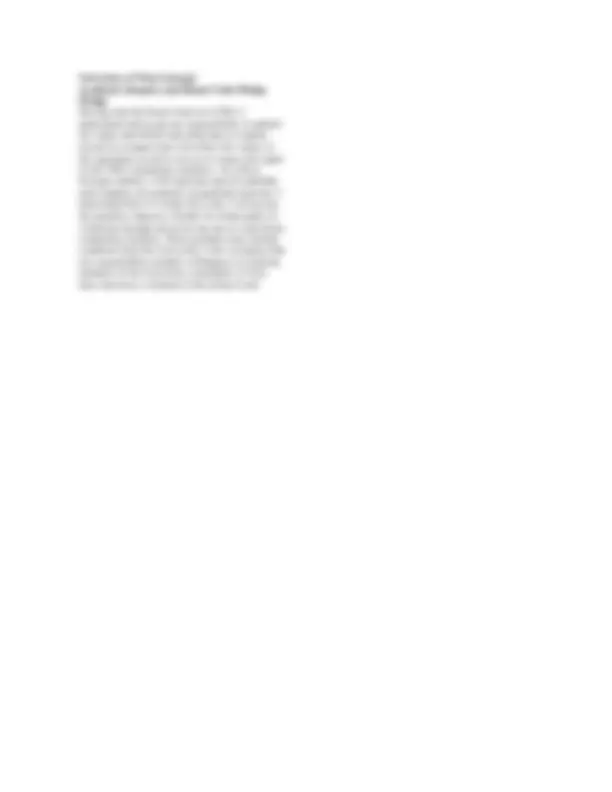



Study with the several resources on Docsity

Earn points by helping other students or get them with a premium plan


Prepare for your exams
Study with the several resources on Docsity

Earn points to download
Earn points by helping other students or get them with a premium plan
Community
Ask the community for help and clear up your study doubts
Discover the best universities in your country according to Docsity users
Free resources
Download our free guides on studying techniques, anxiety management strategies, and thesis advice from Docsity tutors
Material Type: Assignment; Professor: Congleton; Class: Applied Computing for Geoscncs; Subject: Geology; University: University of West Georgia; Term: Unknown 2002;
Typology: Assignments
1 / 2

This page cannot be seen from the preview
Don't miss anything!


University of West Georgia HONOR CODE
Introduction An honor code is essential to the University of West Georgia as an agreement between students and the University to promote commitment to academic integrity. Academic and personal integrity is based upon values such as honesty, trust, fairness, respect and responsibility. In an environment that recognizes and honors these values, standards of academic excellence must be maintained. An atmosphere of academic integrity enhances ethical and moral development among college students. It is the responsibility of the community of West Georgia, including all students, faculty and staff, to uphold the inherent values of the Honor Code.
Each student is given a copy of the Honor Code upon enrollment in the University. By signing the pledge, a student is making a commitment to honor the principles of academic and personal integrity, refuse to condone violation of the honor code by other students, and support imposition of penalties against those who commit violations.
The Honor Code At the University of West Georgia we believe that academic and personal integrity are based upon honesty, trust, fairness, respect and responsibility. Students at West Georgia assume responsibility for upholding the honor code. West Georgia students pledge to refrain from engaging in acts that do not maintain academic and personal integrity. These include, but are not limited to, plagiarism, cheating, fabrication*, aid of academic dishonesty, lying, bribery or threats, and stealing.
Definitions Cheating: “using or attempting to use unauthorized materials, information or study aids” Fabrication: “falsification or unauthorized invention of any information or citation” Plagiarism: “representing the words or ideas of another as one’s own. Direct quotations must be indicated and ideas of another must be appropriately acknowledged” Further details regarding Student Conduct can be found in Appendix A of the UWG Connection and Student Handbook.
Penalties for Breach of Academic Integrity Each incidence of academic dishonesty is subject to review and consideration by the instructor, and is subject to a range of penalties including but not
limited to failing the assignment, failing the course, and referral to Office of the Vice President for Academic Affairs.
Responsibility for Reporting Violations of Academic Integrity Students Students who are concerned that they may have violated the honor code are expected to report their behavior to the instructor or academic advisor. Self- reporting does not signify admission of guilt, but does provide the opportunity for dialogue to clear up misunderstandings and miscommunication. A student who observes potential violation of the honor code by another student is expected to confront that student with their behavior and engage in discussion to determine if an actual violation has occurred.
If it is determined that a violation has occurred, the student observed is expected to self-report the incident to the instructor or academic adviser. The instructor or academic adviser will review the situation. If it is then determined by the instructor or adviser that a violation has taken place, appropriate referral will be made.
Faculty or Adviser The instructor or adviser should meet with the student who has self-reported potential violation of academic integrity. During this meeting, the instructor/adviser should inform the student of the penalty s/he intends to institute (failing the individual assignment, failing the class, sending the case forward for further sanctions from the University). After meeting with the student, the instructor should send a brief report of the case, including the breach of academic integrity and supporting documentation to the office of the Vice President for Academic Affairs (VPAA) requesting that this case become a permanent part of the student’s record at West Georgia. THIS REPORT SHOULD BE FORWARDED EVEN IF THE INSTRUCTOR DOES NOT WANT THE UNIVERSITY TO SANCTION THE STUDENT. It is important to create a record of students’ infringement of academic integrity to create a mechanism for identifying patterns of dishonesty. This will enable the University to take appropriate actions to suspend or expel the students with repeated incidents.
University of West Georgia Academic Integrity and Honor Code Pledge Pledge Having read the Honor Code for UWG, I understand and accept my responsibility to uphold the values and beliefs described and to conduct myself in a manner that will reflect the values of the institution in such a way as to respect the rights of all UWG community members. As a West Georgia student, I will represent myself truthfully and complete all academic assignments honestly. I understand that if I violate this code, I will accept the penalties imposed, should I be found guilty of violations through processes due me as a university community member. These penalties may include expulsion from the University. I also recognize that my responsibility includes willingness to confront members of the University community if I feel there has been a violation of the Honor Code.